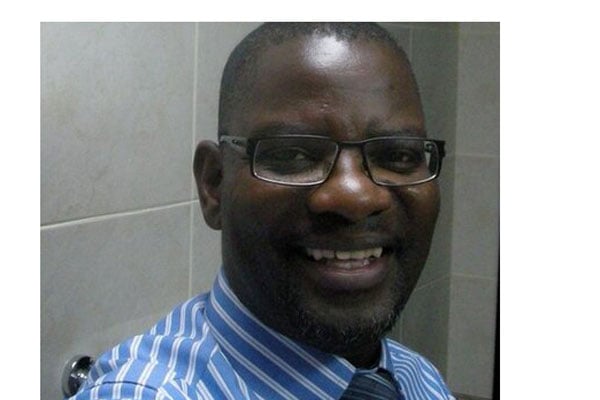Prime
Why is a ragtag armed group called ADF able to kill Ugandans?

Author: Musaazi Namiti. PHOTO/FILE
What you need to know:
- But that is not to say that Uganda has not been a victim of terrorism. Since the late 1990s, the country has lost people to terror attacks.
This week we witnessed death, destruction and injury of the kind we normally see on TV screens in places such as Somalia, Afghanistan and Pakistan.
But that is not to say that Uganda has not been a victim of terrorism. Since the late 1990s, the country has lost people to terror attacks.
There was a decade-long hiatus, between 1999 and 2009, but in June 2010, terrorists plunged the country into national grief when they killed 76 people in a series of blasts — the deadliest terror attack on our soil.
Tuesday’s blasts right in the heart of the capital were a grim reminder that the country is still vulnerable and will continue to lose innocent people unless drastic measures are taken to combat terrorism.
At a news conference organised shortly after the twin suicide bombings, the police spokesperson, Fred Enanga, urged Ugandans to remain vigilant, saying that terrorists were out to attack indiscriminately.
It is all very well to urge civilians to remain vigilant and report suspicious individuals to the authorities, but the truth is that the responsibility to secure and make Uganda safe for everyone lies with security agencies. Civilians play only a complementary role.
Responding to the assailants, President Museveni used the insulting term that has become an integral part of his active vocabulary — “pigs”. The problem is that no matter how forcefully you shout “pigs” in reference to killers, you are effectively saying nothing, especially if the killers continue to carry out deadly attacks.
Mr Museveni and his government blame the Allied Democratic Forces (ADF) for the terror attacks in Uganda, although the attack in October was claimed by the Islamic State. If what they are telling Ugandans is true, it raises questions as to why our security forces have had a hard time reining in what, to all intents and purposes, is a ragtag armed group.
The group remains devastatingly active.
You just have to reel off the names of the victims of the ADF to know that — if indeed it is the mastermind of the attacks — it has the potential to continue causing death, destruction and injury. Here is a list of the prominent victims: Joan Kagezi (senior prosecutor), Suleiman Kiggundu (major in the UPDF), Andrew Felix Kaweesi (Assistant Inspector General of Police), Mohammed Kurumira (senior police officer) and Ibrahim Abiriga (MP).
This past June, the group very nearly added Gen Katumba Wamala to its grim list. Gen Katumba is no ordinary soldier; he has previously headed the UPDF. Yet assailants showered him with bullets in broad daylight. He survived the attack with gunshot injuries — but, sadly, his daughter and his driver did not.
All countries rely on intelligence to beef up national security. But in Uganda, it looks as though the country’s intelligence network knows little or nothing about national security threats. It took warnings from Britain and France for us to know that we were at risk of terror attacks.
Effective intelligence gathering does not mean Uganda cannot be attacked by terrorists, but there is strong evidence to suggest that countries use intelligence to foil terror plots. Between 2017 and 2021, for example, Britain’s MI5, the equivalent of our ISO, thwarted 31 late-stage terror plots.
You do not want to imagine what would happen in Britain if intelligence gathering was ineffectual.
As we mourn the victims of the attacks, our government should ask how foreigners manage to know that Uganda is facing national security threats when its intelligence agencies do not.
Mr Namiti is a journalist and former
Al Jazeera digital editor in charge of the Africa desk
[email protected] @kazbuk




